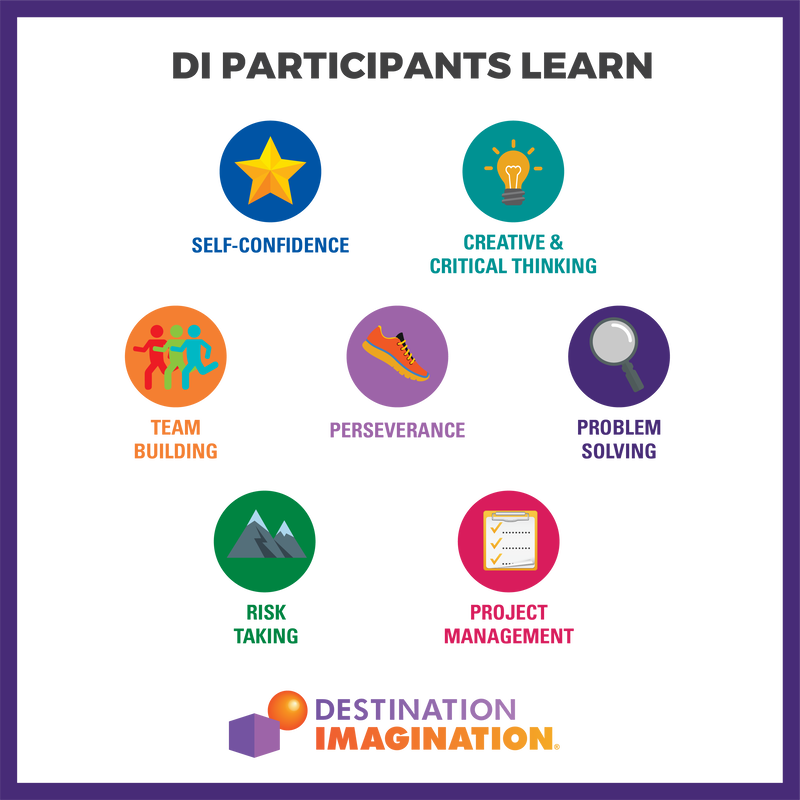Do you think your child might be interested in Destination Imagination?
|
If your child is creative or curious, crazy about puzzles, loves to paint and draw, can build anything out of cardboard boxes, writes amazing stories, thinks up whimsical new worlds, is totally into science, or has rewired your toaster into a working time machine (or wants to), then you may have a Destination Imagination child. Destination Imagination (DI) Challenges are all about fostering creativity, courage, and curiosity whilst teaching students how to think, not what to think. Each year, we offer seven different open-ended academic Challenges in the fields of STEM (science, technology, engineering, and mathematics), fine arts, service learning, and early learning. Check out some tips from DI HQ here. |
|



